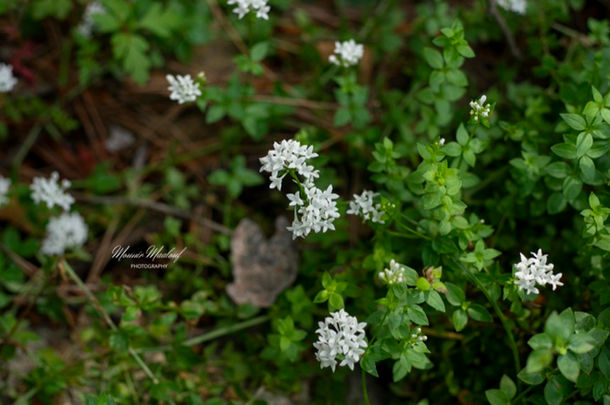Family |
Rubiaceae
Asperula libanotica
Boiss.
Leb. Syr. Pal.
Asperula libanotica Boiss.
(Nouvelle Flore du Liban et de la Syrie, vol. 3, Pl. CLIV nº 1; 1983)
Life-form & habit: Multistemmed, glabrous perennial with slender, soft, ascending filiform stems, slightly scabrous, 20–60 cm tall.
Leaves: In whorls of 6, ovate-oblong, slightly acute, 3-nerved, with scabrous margins.
Inflorescence & flowers: Terminal capitate fascicles. Involucral bracts 6–12, elliptical to lanceolate, unequal, glabrous, shorter than the corolla.
Corolla: White, with a gradually widened tube about twice as long as the ovate, slightly acute lobes.
Anthers: Linear, black, subincluded.
Style: Long, exserted, bipartite.
Fruit: Semiglobose mericarps, papillose.
Phenology: Flowers from April to June.
Habitat & elevation: Woodland or grassy areas.
Lebanese distribution: Mi. Bikfaya, Araya, Kfar Houné (Jezzine), Bzoummar, Hasroun, ‘Abey, Broummana, Bhamdoun, Ghamlan, Beit Meri, Kafer Him near Deir-el-Qamar, coastal slopes below ‘Abey, Mekine; Mm. Falougha, Hasroun, around Ehden, Sannine, Raboué, Ehden Forest, Qannoubine, Cèdres de ‘Aïn Zehalta, Sir-ed-Denniyé, Jabal Barouk, below Hadeth el-Joubé; ‘Akkar: Hrar.
Native range: Lebanon, Syria and Palestine/Israel




